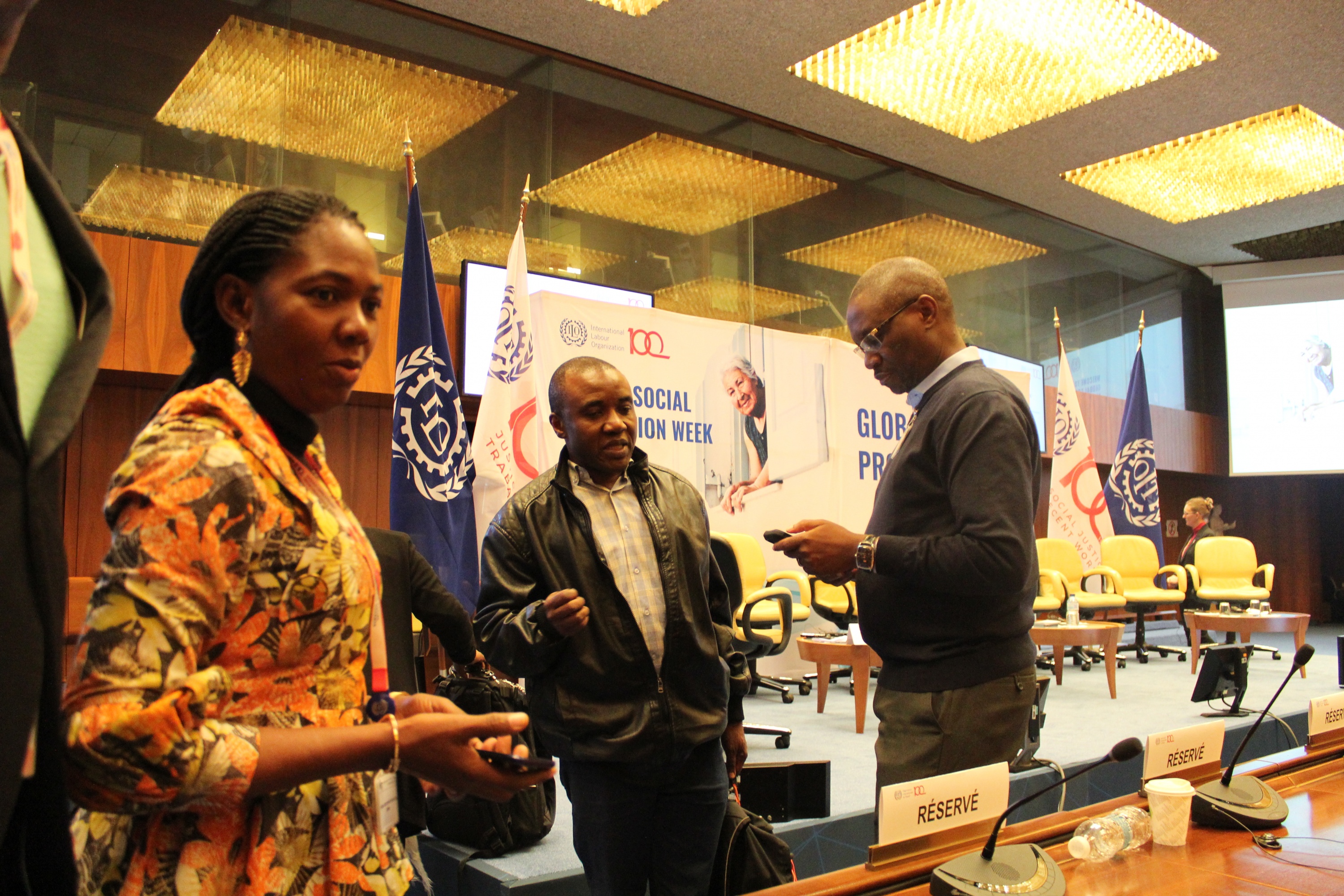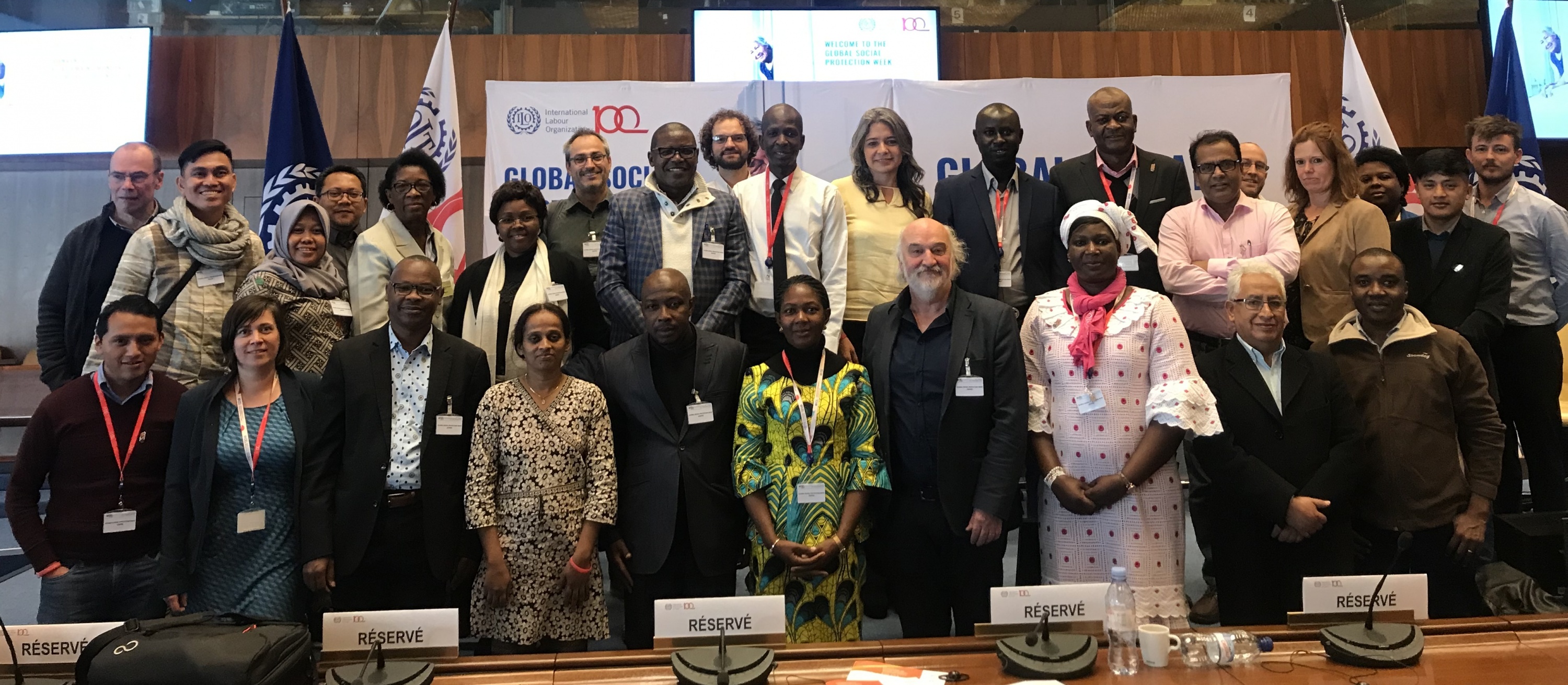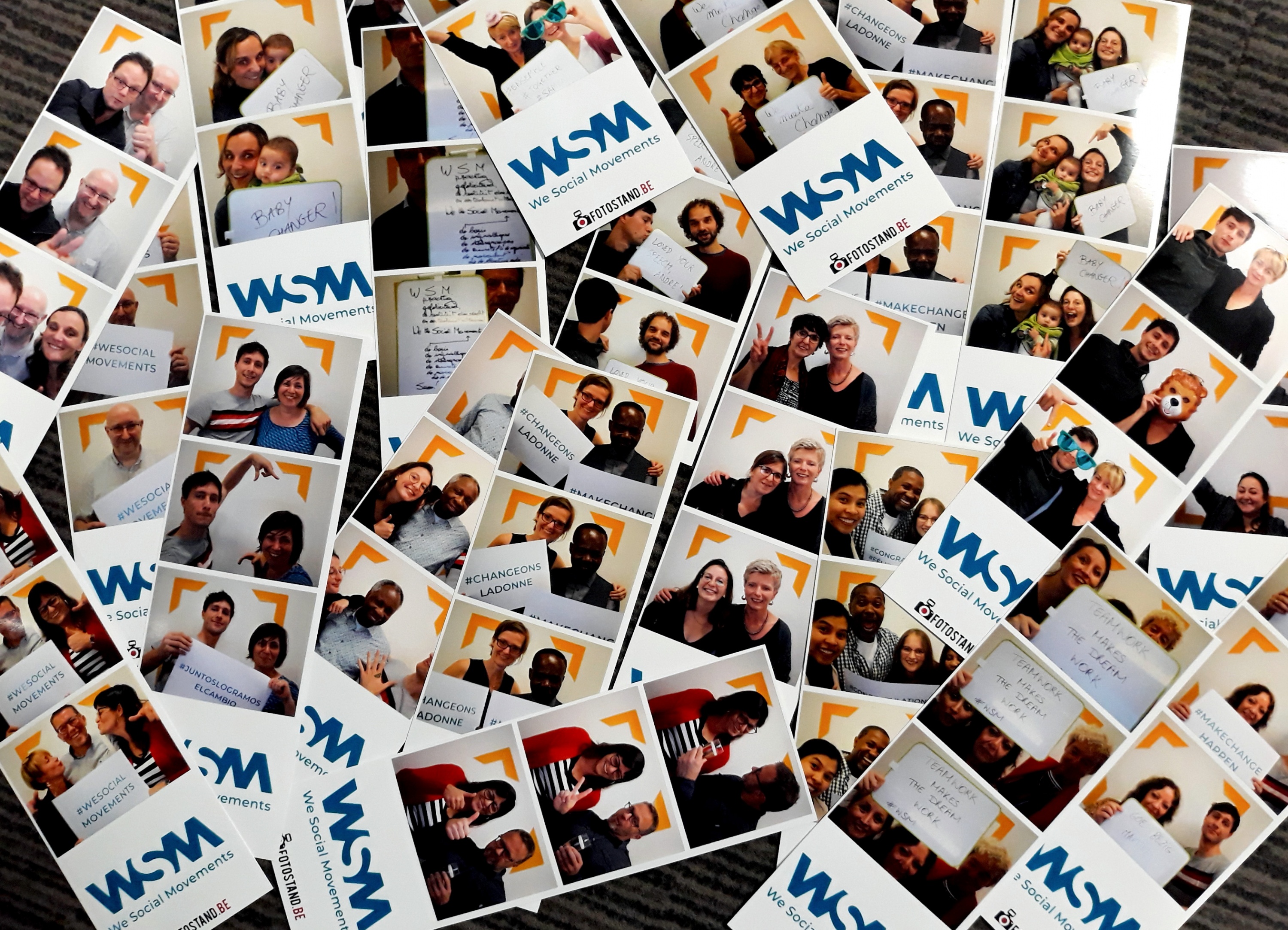 Four days of high-level conference on universal social protection (# USP2030) allowed to share a lot of key information and to network. Many high-level personalities talked about the importance of social protection and how it will be achieved by 2030. So many changes await us: climate - demography - globalization - growing inequalities – changing labor markets. A transition is needed and social protection must be part of this transition! You can find the outcome document here.
Four days of high-level conference on universal social protection (# USP2030) allowed to share a lot of key information and to network. Many high-level personalities talked about the importance of social protection and how it will be achieved by 2030. So many changes await us: climate - demography - globalization - growing inequalities – changing labor markets. A transition is needed and social protection must be part of this transition! You can find the outcome document here.Currently, social protection as a human right is far from being a reality.
Barely 29% of the world's population has access to comprehensive social protection systems, 55% are totally deprived, while the global economy is worth over $ 100 billion. This means there is enough money to send all the children of the world to school, to provide everyone in the world with quality health care, to ensure that everyone in the world has adequate social protection. But, here is the catch: “there are 2.000 billionaires!”, says economist Jeffrey Sachs: “There is enough, it is just not distributed properly." So don’t point your finger at low-income countries, but blame the Donald Trumps, Bill Gates or Mark Zuckerbergs.
For social protection to be possible for all, for it to be affordable, that it is not perceived as a cost but as an investment depends on political priorities. Over and again, the same messages came back during the Global Social Protection Week in Geneva. The International Labor Organization (ILO) brought together over 600 people from governments, private companies and social movements to chart the way to universal social protection. It invites us to accelerate to increase the likelihood of reaching the goal by 2030. That being said, there is still a lot to do!
"It exists on paper, but practice is different!"The goal of the Sustainable Development Goals (SDGs), specifically number 1.3, is to put in place social protection systems that protect everyone, including the poorest and most vulnerable sections of the population. Social protection starts with social dialogue, a necessary exchange between employees, employers and government. Many social protection systems are based on the labour relationship and their legal status (employed or self-employed). These systems must evolve to adapt to changing contexts around the world.
"There is already a social protection system in the Dominican Republic - at least on paper - the practice is somewhat different, since more than half of the working population is employed in the informal sector, they are not entitled to benefits when they become ill". Altagracia Jimenez, representative of our union partner AMUSSOL, immediately tackles one of the many problems. Setting up an official social protection system is one thing, covering the whole population is another.
Moreover, it should not be forgotten that there is no single universally applicable social protection system, it needs to be adapted to the realities of each country. Therefore, social protection should be seen by states as a global investment and not a cost. Investing in social protection contributes to peace, more equality and more democracy, it is a public investment in social justice. And, when rolled out, it shows a clear multiplier effect for many of the other Sustainable Development Goals.
However, let us not forget that there is a financial gap, namely that the poorest countries alone can’t fund it. Solidarity is therefore needed from richer countries, as well as from the rich, towards the poorest countries. According to experts, "comprehensive social protection" is needed, and goes well beyond the "safety nets" that many countries rely on. The best systems are "universal"!
Will we solve this problem simply by organizing an International Conference?
In the end, it seems difficult to formulate a global answer while each continent, each country, each region has its own realities. According to Koen Detavernier, Advocacy Officer at WSM, such a conference is still relevant: "A conference like this can reinforce the belief that it is possible. If a country like Mexico in one year is able to provide pensions in one year and thus make a great leap for universal social protection, other countries will be convinced that they, too, can make it happen. This conference really encourages countries to invest in social protection and prioritize it in their international cooperation."
The network supported by WSM
WSM was very present at this Social Protection Week in Geneva. Our delegation of 35 people was mainly composed of representatives of our many partner organizations from Africa, Asia and Latin America. According to Koen Detavernier, there are two main reasons for being here. "On the one hand, we are here to learn more about the topic: experts present their points of view, explain future strategies, give concrete examples and share the results of their research." But the idea is also to do and achieve things. "We are looking for new collaborations, for example, to work on very concrete aspects of social protection on the ground, through informal conversations, meetings in the corridors, etc. Being seen and heard in this conference makes a difference and helps get things moving."












